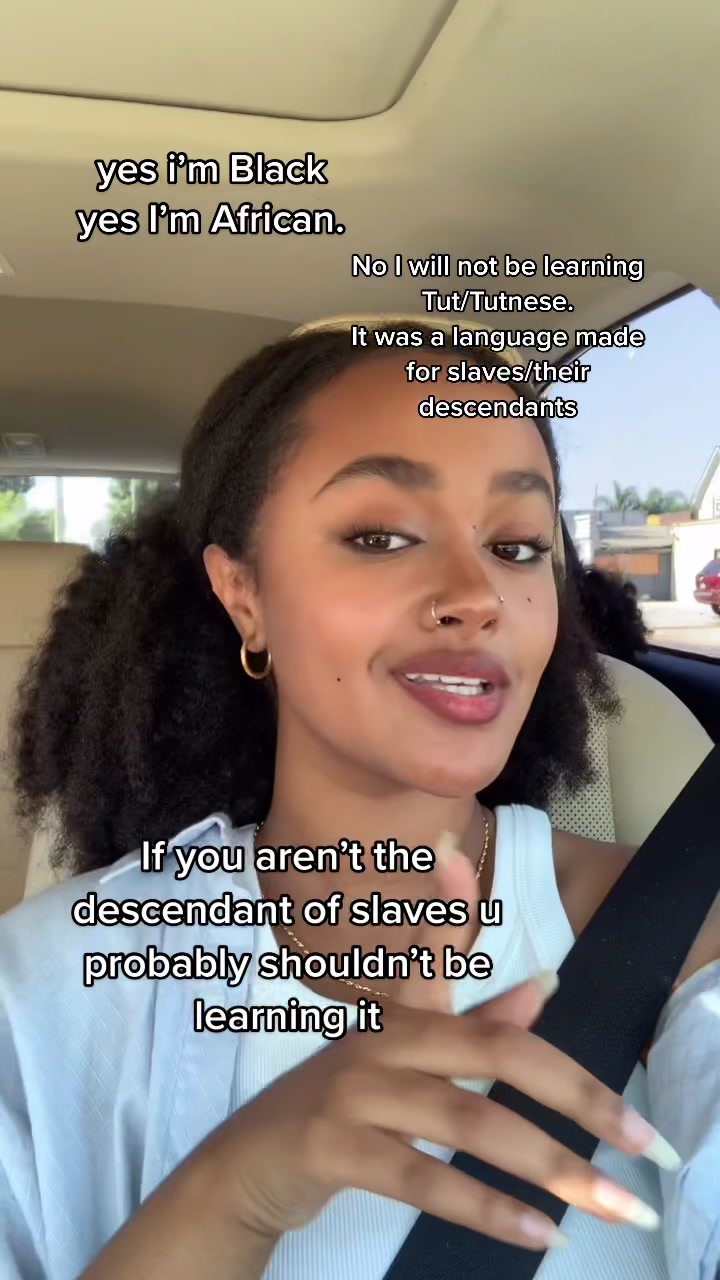In 1995, author Gloria McIlwain, published a guide on Tut. She wrote in an article in American Speech Journal, “I was told by my aunt that her father (who could read and write English) had referred to TUT Language as a; ‘disguised language’ that could have got him killed; thus, as a grown man he refused to speak it.” In Tut, every letter in the English alphabet becomes a distinct sound. Tut, according to McIlwain’s website, may have originated from the word “talk.” It’s also been referred to as “Tutnese” and “King Tut.”
@thatbrownguurl This is making me so happy y’all 🥺 #tutnese #tut #blacktiktok #blackculture #blackhistory #blackgirlmagic #gatekeeping #ados

Debates on Learning Tut
For a number of African Americans, learning Tut has built a connection to their ancestors and community. However, with the resurgence of Tut, some say the language should remain underground. When a user on Facebook shared the Tut alphabet, commenters called for the post to be taken down. “This should not be public. It’s for AFRICAN AMERICANS,” one commenter replied.
Though there are no known restrictions to the language, some say that not all Black people can learn it; only African Americans whose ancestors were enslaved in the U.S. and former colonies.

